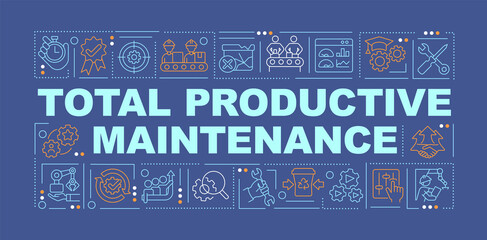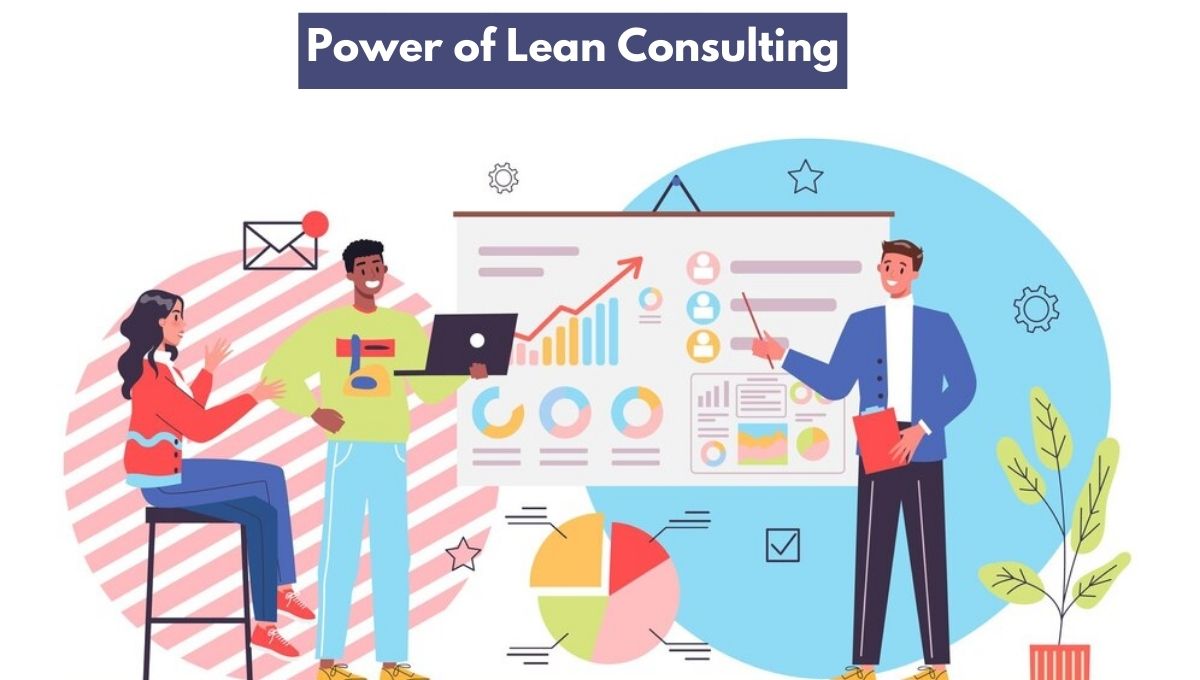In today’s fast-paced business landscape, the need for efficiency is paramount. Companies from every sector are continually seeking methods to streamline their processes, reduce waste, and boost overall productivity. This is where “Lean Consulting” comes into play, providing tools and strategies that empower organizations to improve performance effectively.
In this blog, we will explore the essence of Lean Consulting, the key principles behind it, its benefits, and how it integrates with methodologies such as “Kaizen”, “Total Productive Maintenance (TPM)”, and “Six Sigma”. By the end, you will understand why adopting Lean principles is pivotal for business success.
Understanding Lean Consulting
“Lean Consulting” is a methodology focused on maximizing value for customers while minimizing waste. The core idea is to enhance efficiency by creating more value with fewer resources. It originated from the manufacturing sector, particularly the Toyota Production System, and has since spread to various industries, including healthcare, finance, and even service-oriented businesses.
At its heart, Lean Consulting aims to identify and eliminate activities that do not add value to the end product or service. This focus on value creation leads to improved customer satisfaction and reduced costs.
Key Principles of Lean Consulting
Lean Consulting revolves around a set of fundamental principles:
- Value: It’s vital to define what value means from the customer’s perspective. Understanding customer needs allows businesses to focus on activities that truly matter.
- Value Stream: This involves mapping all the steps in a process to see where value is created and where waste occurs. By visualizing the workflow, companies can identify inefficiencies.
- Flow: Lean promotes the idea of continuous flow. This means processes should be streamlined to minimize delays and interruptions that can hinder productivity.
- Pull: Rather than pushing products to customers, Lean methodologies encourage a pull system. This system ensures that products and services are created based on customer demand, reducing excess inventory and waste.
- Perfection: Lean is always striving for perfection. It acknowledges that while perfection is unattainable, organizations should continuously pursue improvement as a journey.
The Importance of Lean Consulting

Adopting Lean principles can lead to transformative changes within an organization. Here are some critical reasons why Lean Consulting is important:
Improved Efficiency
One of the most significant impact areas is efficiency. By eliminating waste in processes, businesses can operate smoother, resulting in faster delivery times and enhanced productivity. Teams spend more time focusing on valuable tasks rather than getting caught up in bureaucratic processes.
Reduced Costs
With improved processes come reduced costs. Lean Consulting helps businesses identify unnecessary expenses that do not contribute to the product or service. This financial well-being is crucial for maintaining competitiveness in today’s market.
Enhanced Customer Satisfaction
When organizations focus on delivering high-quality products or services promptly, customer satisfaction skyrockets. Lean methodologies emphasize meeting customer needs and responding quickly to changes in demand, leading to better loyalty and retention.
Employee Engagement
Introducing Lean practices also fosters a time-bound culture of continuous improvement, encouraging employee involvement. When employees see how their roles contribute to overall success, they become more engaged, motivated, and productive.
Sustainable Growth
Lean is not just about short-term gains; it also lays the foundation for sustainable business practices. By instilling a culture of continuous improvement, companies can adapt and grow, even in challenging economic conditions.
Integrating Lean with Other Methodologies
Kaizen
One of the most significant concepts within Lean is “Kaizen”, which means “continuous improvement” in Japanese. Kaizen encourages all employees to suggest changes in processes and workflows. The philosophy promotes that small, incremental changes can lead to substantial improvements over time.
For example, in a manufacturing setting, frontline workers might identify inefficiencies in machine operations. Their feedback can lead to minor adjustments that, when aggregated, result in a noticeable increase in production rates and reduced downtime.
Total Productive Maintenance (TPM)

“Total Productive Maintenance (TPM)” is another methodology that intersects with Lean Consulting. TPM focuses on maximizing the effectiveness of manufacturing equipment, ultimately contributing to Lean’s aim of maximizing value while minimizing waste.
Implementing TPM involves not just maintenance practices but also engaging all employees to take responsibility for equipment. When machines are well-maintained, downtime is reduced, leading to a smooth flow of operations, which is a core objective of Lean.
Six Sigma
While Lean focuses on eliminating waste, “Six Sigma” deals with reducing variability in processes. Both methodologies complement each other well, as together they can lead to significant improvements in quality and performance.
Six Sigma employs statistical methods to enhance process quality by identifying defects and their causes, while Lean promotes more efficient processes. Integrating both allows organizations to create a more holistic approach to performance improvement.
Steps to Implement Lean Consulting
To successfully implement Lean Consulting within your organization, consider the following steps:
- Commitment from Leadership
Leadership buy-in is essential for any major change initiative. Leaders must not only support Lean principles but also actively participate in the transformation journey.
- Train Employees
Providing training on Lean principles for all employees is vital. This ensures that everyone is on the same page and understands how their roles contribute to the overall objectives.
- Map Processes
Begin by mapping out existing processes. This clarity allows for evaluating which activities create value and which do not, enabling targeted improvements.
- Identify Waste
Using the value stream map, identify all sources of waste. This includes anything that consumes resources but does not add value to the customer’s experience.
- Implement Changes
Start with small, manageable changes. Lean encourages a gradual approach where teams can test improvements and refine processes.
- Continuously Improve
Lean is about continuous improvement, so organizations must have mechanisms to regularly assess and update processes. Encourage employee feedback and be open to making adjustments as necessary.
- Celebrate Successes
Recognizing and celebrating improvements boosts morale and encourages ongoing participation in Lean initiatives.
Conclusion
Lean Consulting is more than just a set of tools and techniques; it represents a cultural shift towards efficiency, value, and continuous improvement. In a world where customer demands are constantly evolving, businesses cannot afford to overlook the potential that Lean methodologies offer.
With approaches like Kaizen, TPM, and Six Sigma reinforcing Lean principles, organizations are equipped to tackle challenges head-on, ensuring sustainable growth and enhanced performance. By implementing Lean Consulting, businesses not only get leaner but also become more adaptive and resilient in the face of change.
Remember, it’s not just about doing things right; it’s about doing the right things. With Lean Consulting, your organization can embark on a journey toward excellence that will set you apart in today’s competitive environment.
—
This comprehensive overview of Lean Consulting is designed to help readers understand its significance, benefits, and implementation strategies, underscoring how it can transform businesses into efficient, customer-centric organizations. Embrace Lean, and watch as your business flourishes!
Click on the link to discover more about the power of Lean Consulting: https://www.ribcon.com/


